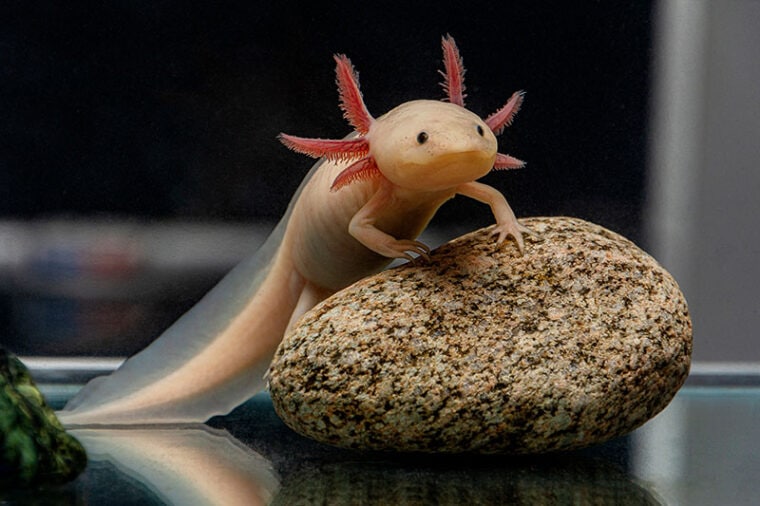
Axolotls are becoming more well-known and popular as pets, with many young people learning to love these amphibians from the game Minecraft. Axolotls are fascinating amphibians because they stay in their larval stage, so they stay fully aquatic for their entire lives. They retain gills that allow them to breathe underwater but don’t develop the ability to live on land.
Axolotls aren’t legal to own in all areas, but if you live somewhere that they are legal, you may not have too much difficulty finding them in aquatics stores. Does the ease of finding axolotls in shops mean that their wild numbers are safe, though? Unfortunately, axolotls are critically endangered!
Are Axolotls Endangered?
Almost all axolotls in the pet trade are captive-bred axolotls. The primary reason for this is that axolotls are critically endangered. Part of the cause is that axolotls are native to only one place in the entire world.1
At one time, axolotls inhabited most of the lakes around Mexico City. However, due to habitat destruction and pollution, they are now only located in a handful of canals in the area.
To protect wild axolotls, many countries have import restrictions on axolotls. In Mexico, their native country, axolotls can only be obtained from nurseries that have been accredited by the secretary of the environment. Even in the US, many states have restrictions on the ownership of axolotls, with them being fully illegal to own in some states. Some states require permits to own axolotls.

Why Are Axolotls Important?
Axolotls are far more than just interesting pets. These fascinating creatures have exceptional regeneration capabilities, making them important to the scientific community. Axolotls can regenerate limbs, gills, entire organs, and large portions of their central nervous system.
Scientists have studied them for around 200 years for their regenerative capabilities in hopes of using the knowledge garnered from these amphibians to support human medicine and limb, organ, and nervous system regeneration. The axolotls used for scientific research are captive-bred for this purpose, so these studies don’t impact the numbers of wild axolotls.
Axolotl Ownership
With the recent axolotl craze, many people have quickly learned that these cute amphibians have extremely specific requirements. They need cold water that is often far colder than room temperature, which means specialized aquarium equipment is needed to maintain an appropriate temperature. They also need a fully cycled aquarium with high water quality to stay healthy and live long lives. There is a commitment to maintaining excellent water quality and providing appropriate aquarium care needed when it comes to axolotls.
Axolotls have specific dietary requirements, with some preferring live food, like nightcrawlers, while others are trained to consume pellet foods. As fun and interesting as these animals are, axolotls aren’t the type of pet that appreciates being handled, so new owners need to be willing to have a pet that they can look at but not touch unless it is absolutely necessary.

In Conclusion
Unfortunately, wild axolotls are critically endangered, which only puts them one step above being extinct in the wild. It is very likely that the wild populations of axolotls won’t survive the poor environmental quality brought on by pollution, so it’s necessary for humans to become more responsible with the natural world and be willing to continue to work hard on conserving critically endangered species, like the axolotl.
- Related Read: Where Do Axolotls Come From? (Country & Origins)
Featured Image Credit: Iva Dimova, Shutterstock






